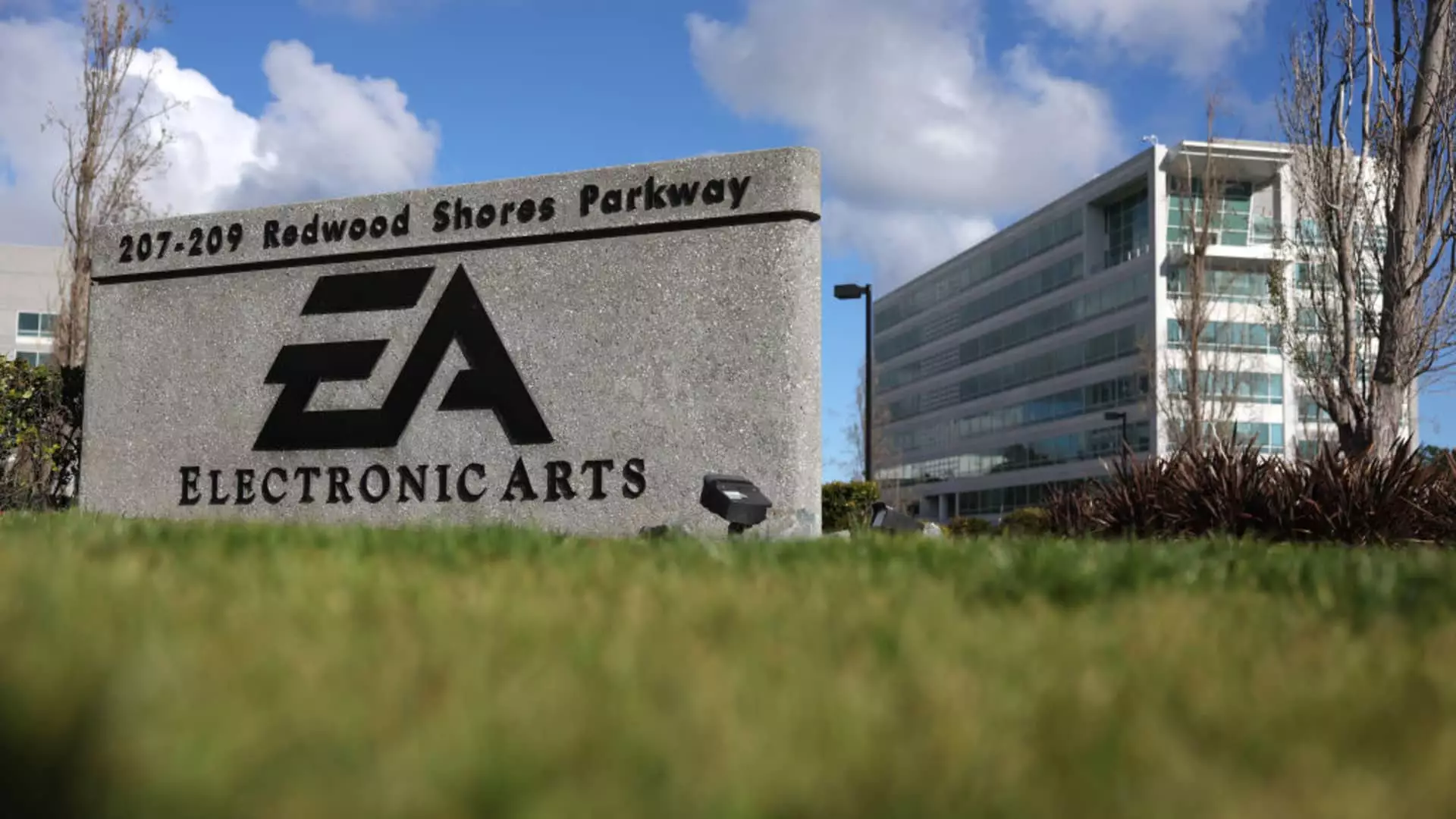Electronic Arts (EA), a long-standing leader in the gaming industry, is facing unprecedented challenges as its stock prices plummeted 19%, marking the most significant drop since the heights of the dot-com bubble in 1999. As of midday Thursday, shares were trading at $115.86, reflecting investor unease over the company’s reduced full-year bookings outlook. This steep decline serves as a stark reminder of the volatility and unpredictability inherent in the tech and entertainment sectors, especially when consumer engagement wavers.
In a recent communications update, EA projected net bookings for the fiscal third quarter—a period that ended on December 31—to be around $2.215 billion. This expectation is notably lower than prior forecasts, which ranged from $2.4 billion to $2.55 billion. This financial turbulence comes in tandem with a quarterly revenue report revealing earnings of approximately $1.88 billion, as well as a diluted earnings per share figure of $1.11. The surprise cut in guidance has raised eyebrows among analysts, leading to a cautious hold rating from Roth Capital Partners.
A major factor behind this downturn is the underperformance of EA’s flagship soccer franchise, now branded as EA Sports FC following the dissolution of its partnership with FIFA. The shift has evidently caused a significant identity crisis for a series that has dominated the sports gaming market for decades. EA cited lower-than-expected engagement with recent titles, with role-playing game Dragon Age attracting only 1.5 million players—roughly 50% below their expectations. Analysts attribute these challenges predominantly to weaknesses in the global football sector, significantly affecting EA’s revenue from live service offerings, which have historically bolstered the company’s financial stability.
Looking ahead, EA has adjusted its full fiscal year net bookings expectations to a range of $7 billion to $7.15 billion, down from an earlier forecast of $7.5 billion to $7.8 billion. This downward trend amplifies concerns about the company’s ability to leverage its established franchises effectively. With the soccer franchise being a substantial contributor to live service revenues, investors are left questioning the brand’s viability and the long-term implications of the recent rebranding.
The looming report of third-quarter results set for February 4 will serve as a pivotal moment for EA. It is a chance for the company to address investor concerns and potentially lay out a corrective path forward. As established gaming companies navigate changing market dynamics and shifting consumer preferences, EA must proactively adapt and innovate to reclaim its lost ground in critical franchises. Ultimately, the next steps will dictate whether EA can recover from this setback or will continue to struggle in an increasingly competitive landscape.

